By Lillian Okenwa
He bustles into the office reception that Friday morning with a breezy smile apologizing that he got the timing for the interview mixed up. With a note of apology in his voice, he tells me to give him a little time to settle down in his office and pray. It wasn’t long before I was ushered into his warm and very unpretentious office. In his usual hearty custom, he stood up to welcome me noting that it’s been years we met since my ThisDay Newspaper days. After a brief chit chat we launched into the business of the day.
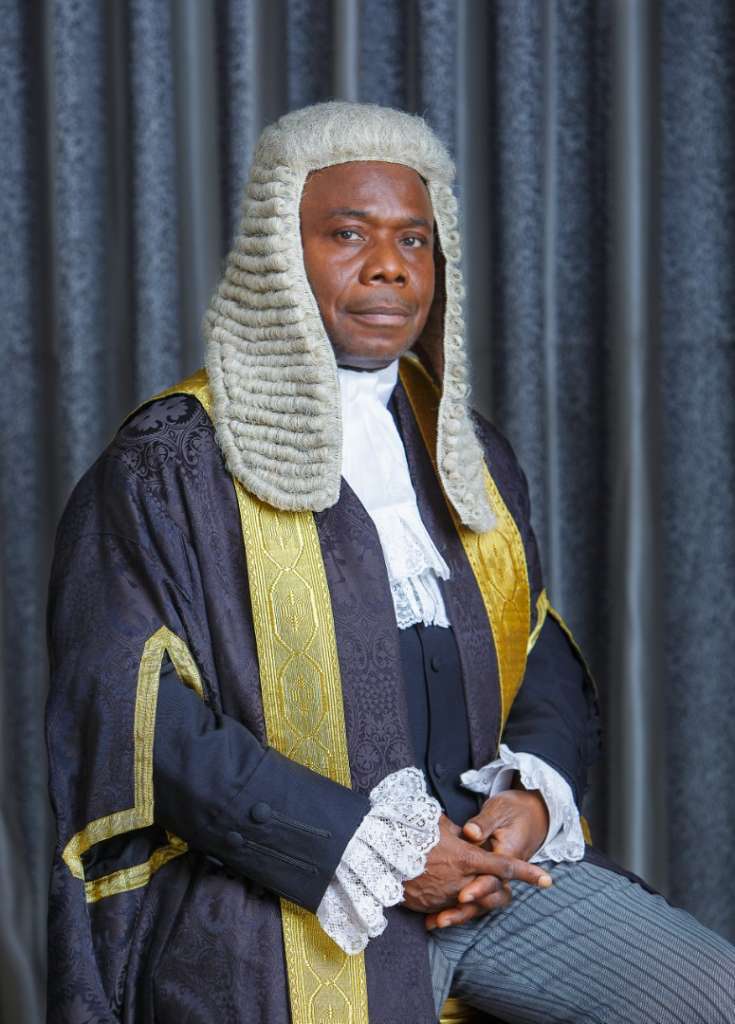
Samuel Otseilu Zibiri Senior Advocate of Nigeria, (SAN), an Abuja private legal practitioner was called to the Nigerian Bar in 1987. He graduated from Ahmadu Bello University (ABU) Zaria in 1986 and did the mandatory National Youth Service in Abeokuta, Ogun State with Chief B. K. Ashade. After Youth Service, he joined Cosmic Chambers in Minna, Niger State in 1989 where after a few months, his principal set up a branch for him in Kaduna to manage. Six months later, there was an opening in the Abuja office and he was transferred to Abuja to head the office.
In the 1980s, the property market in Abuja was in full bloom. Most lawyers in the city were into the business and so by 1989 when Zibiri came to Abuja, very few lawyers were in active legal practice. But he was determined to be different. “I remember Karina Tunyan, SAN. We call him the doyen of Abuja lawyers because most junior lawyers run to him. Whenever I had a problem I went to him, so basically he was my mentor. I stayed in Cosmic Chambers for twelve years or thereabout. Since then I have been in private practice.”
His toughest case
The case of Charles Okah, a former militant leader, sentenced for life after being found guilty of plotting the 2010 Independence Day bombing that left at least 12 people dead in Abuja, remains the most difficult case Samuel Zibiri ever handled.
“FRN vs. Charles Orkar was my toughest case, and the case was quite technical. The public had already convicted him because of circumstances behind the case itself. We had every reason as far as I am concerned for him to have been discharged and acquitted, but on a second thought I have my reservations.
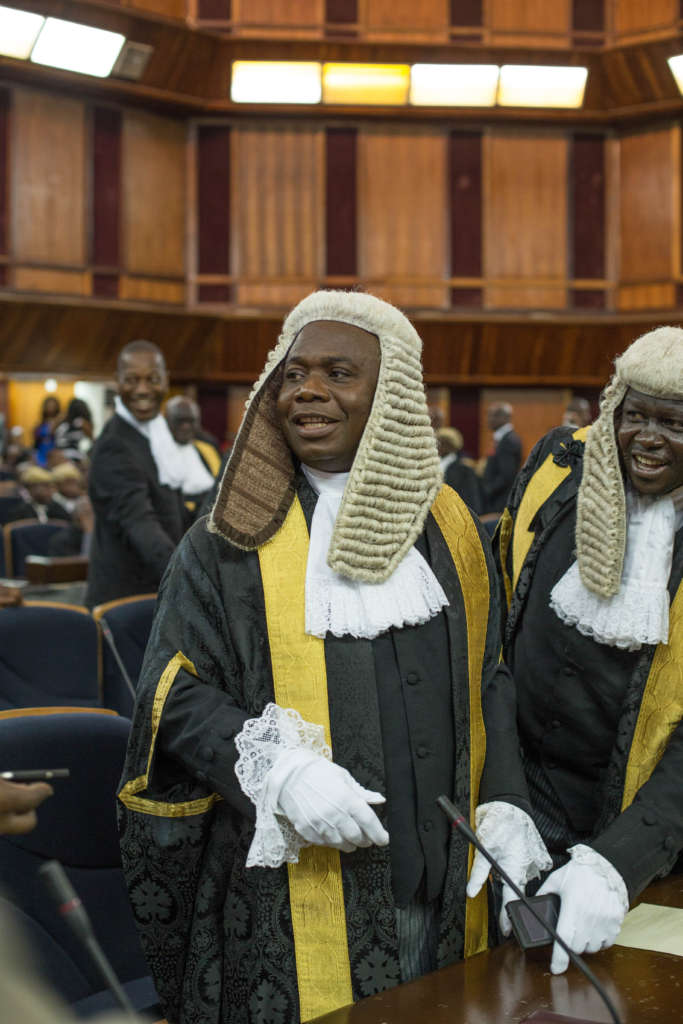
I became so close to Charles. He was like my brother and I preached to him. I didn’t know if he believed in God that time, so I was like a mentor and I felt bad with the judgment. I did it probono and I wanted going on appeal but it’s like the family did not appreciate what I did so I didn’t want to have any problem with the family so I withdrew from the matter.
I put in my best but maybe for lack of understanding, he didn’t trust any lawyer. He said he needed an SAN to do his matter because an SAN was prosecuting. But Legal Aid Council assured him and six months into the matter I became an SAN, so he became very relaxed. But that’s not the issue. I felt a lot of things were there that would have gotten him released. I don’t like talking about cases but I was pained.
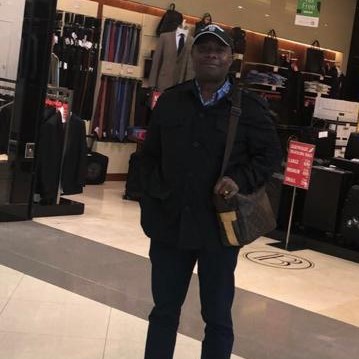
Some challenges in litigation
“You know the Evidence Act said other than the primary evidence which is the original, you cannot tender any public document that is not certified. The problem here is that, let’s use FCDA for example; you sue FCDA and tell them to produce the original document. They will not. Even to bring the certified true copy, they still will not. If you issue a summons, they’ll appear in court. But tell them to produce the file, they tell you they don’t have the file. What then do you do?
“The Evidence Act states that when you give a notice to a person to produce an original document and he fails, you can tender the photocopy. But most judges have a problem with that and say it does not apply to public documents. That has been a major problem and frustrating. I remember a matter I had before the Late Justice Jude Okeke. I informed him that I have issued FCDA notice to produce a document but that they didn’t comply. I wanted to tender a photocopy in accordance with the Evidence Act. Unfortunately, he insisted that it’s not the case with public documents. Though I had the photocopies, I couldn’t get them certified. We summoned FCDA but they didn’t provide the file. That was how I lost the case.
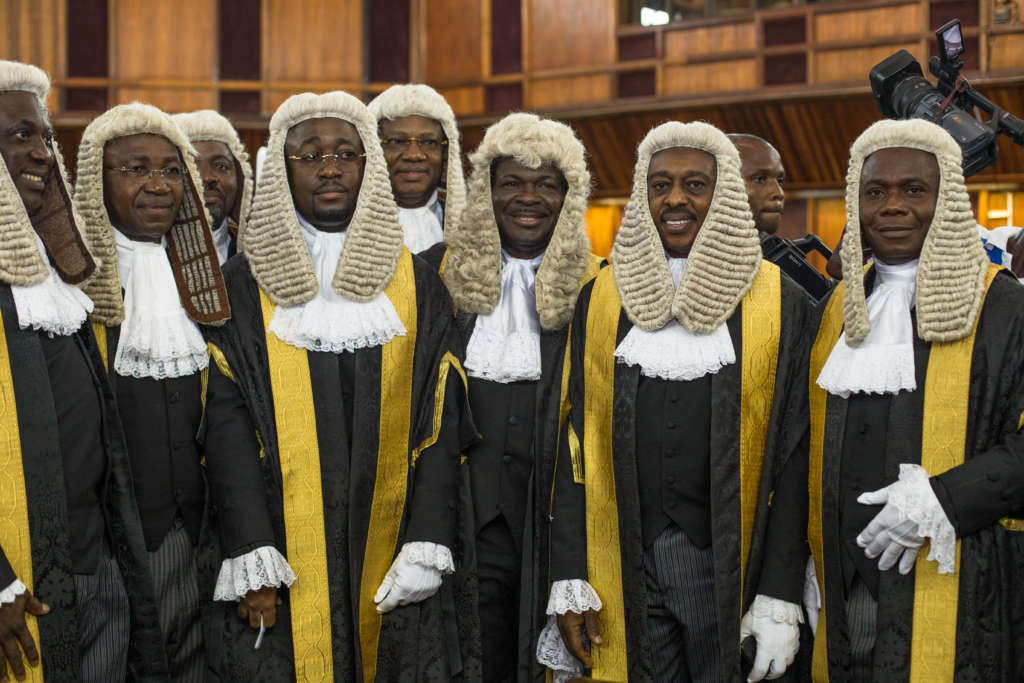
“On ACJA; it is a good thing when ACJA provides that criminal cases should be treated day to day. But imagine if we treat criminal cases day to day at the detriment of other cases. Actually some judges enforce it. Often you see lawyers withdrawing from the matters because other matters are suffering. These are some of the little challenges we are facing. Others are natural. The issue of delaying justice except all judges become computer literate, the hand writing is tiring and some judges consider it as double job on them because after taking those notes they will go home and look at them.”
Becoming an SAN
Unlike many lawyers whose ultimate dream is to become SAN, Samuel Zibiri didn’t see the importance. It took a jolting experience to spur him into action.
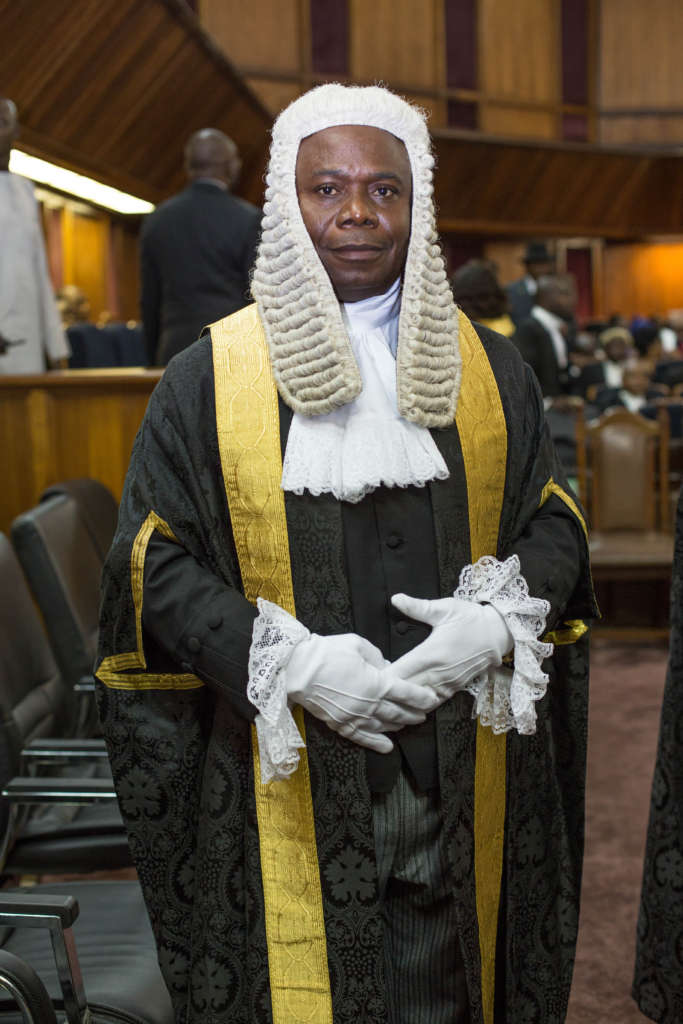
“Actually I never had the intention of becoming Silk. A lot of people thought it’s political but I did not consider it as political. I don’t get into politics. I just face my work. But my opinion about it changed one day. Someone introduced me to an organisation to apply as one of their external Solicitors, so I went there to submit my CV. The man in charge looked at it and said I was qualified but that they only give briefs to SANs. That challenged me. I always believed that not being an SAN does not stop you from excelling. It’s all about knowing the law but, that was a challenge to me. From that office I went straight to the Supreme Court to get the guidelines on becoming an SAN. When I returned to the office, I instructed my secretary to open files for all Supreme Court and Court of Appeal cases. When she did, I realized that I was even qualified. So I made the first application that year (2011) but I was disqualified after office inspection. I wasn’t told the reason though. The next year I applied but there was a professor from my state who was my senior and it was given to him. The following year, another colleague who had been applying for seven years got it. It was at my fourth attempt that I got it, which means if I had tried earlier on I would have gotten it. 2015.”
Early years
Zibiri was born in Chachanga, Niger State on 26th May, 1963. He attended LEA Primary school at Gwari road, Kaduna. “I grew up with my elder brother in Kaduna. My father had 20 of us. It was a polygamous home. My mum had eight while my step mum had 12. I should be number nine or 10 over all but the 5th of my mother’s.
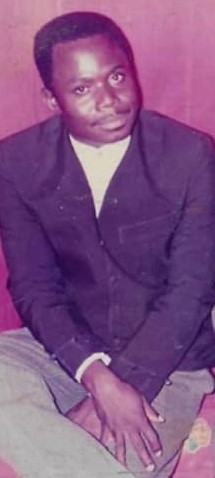
“I went to secondary school in Edo State. St John’s College in Edo state. Then I came back to the north, attended School of Basic Studies (SBS); went to ABU Zaria where I studied law and the Nigerian Law School. Since then I have been in practice. My late principal during my service year, Chief Ashade, gave me the opportunity to learn because he had a lot of experience. He was a retired magistrate and he had a lot of experience in land matters. Funny enough he didn’t look at me as a Corps member. He was giving me assignments. As a Youth Corper, I was going to Court of Appeal. What he does was that in the morning he would come and say, ‘lawyer today you would go to court’. We had a rooster in the office for all cases and one must have studied all the files before then. I learnt it from him. Every Thursday in my firm, the rooster must be out, and I ask the lawyers questions on Friday to ensure they have studied it. We hold conferences and all participate so in case Mr A is sick, Mr B can handle the case.
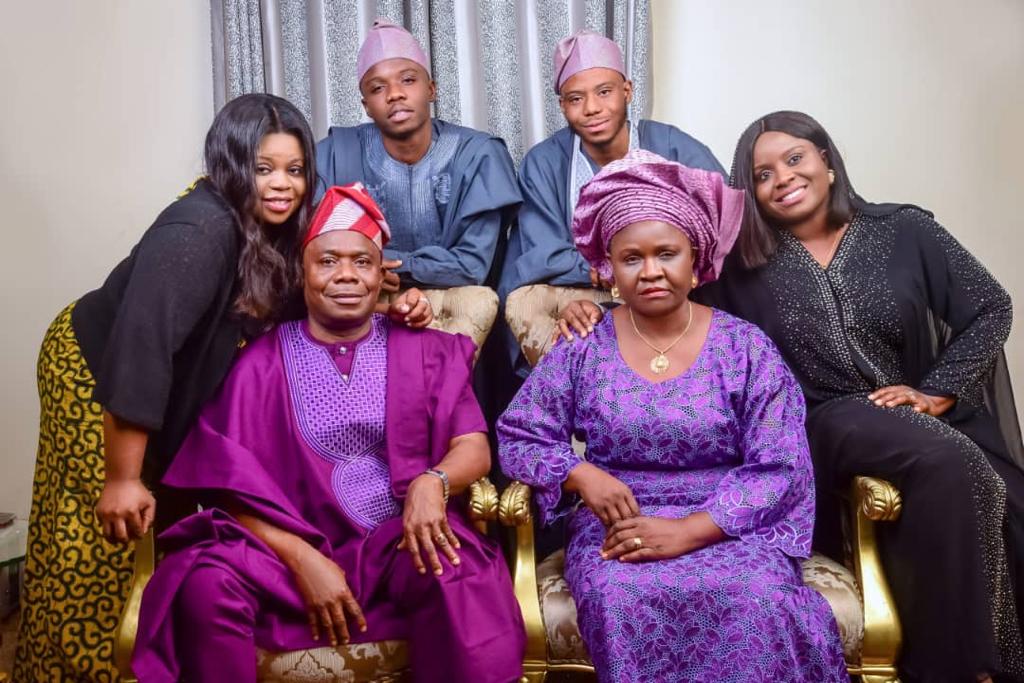
“I also learnt that in some offices juniors don’t sign processes. My juniors sign processes. I allow them to handle files. It’s all about trust. Nobody will ask you to show your credentials before giving you a brief so I allow them access. I equally, assign clients to them. When they finish discussing, they revert back to me. Sometimes they do the negotiations and come back brief me because they know how I charge. They even know how much I charge.
“During the lockdown, I learnt some lawyers were laid off, but I took it as a challenge and trusted God and we were paying salaries. It might interest you to know that during the lockdown we increased their salaries to meet up with the transport fare. We have an office car that conveys staff to work daily but for those that could not meet up, we gave them transport allowance in order to pay for the extra space as a result of social distancing.
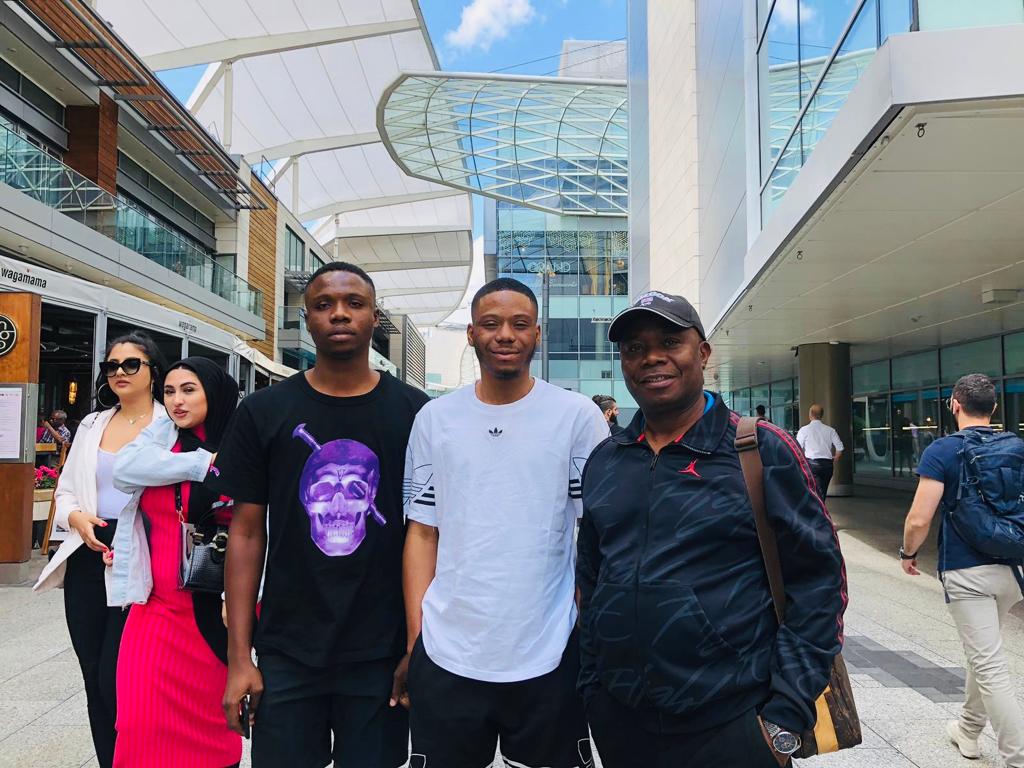
There’s this gate man who has been with me for a long time. When he got married, I needed to help him so we promoted him from a gate man to cleaner so as to be able to see his family. One day during our office fellowship which we have on Fridays in the office, he gave a testimony expressing gratitude to God for this Chambers because his children are always the first to pay their school fees. I felt touched. It means is that, that N40, N30 you pay your staff is something. I always think that if I lay them off, how will they cope with their families? No staff was retrenched in all this and God is still blessing us.”
Money’s not everything
This learned Senior Advocate who describes himself as a devout Christian said he “operates side by side with the Word of God.”
“Let me give you an instance. There was a case I handled in Sokoto. I didn’t start the case and it really looked bad. I took it up, did the necessary amendments. We lost at the lower tribunal but despite my client’s doubts and worries we won all the way from the Court of Appeal to the Supreme Court. So there are times when losing a case is God preparing to bless you. The only challenge to me is when a case takes too long. In some cases I use my money to finish it, because I don’t review my fees once I take up a case no matter how long it takes. Even when I become an SAN I maintained my fees for my regular clients except a new brief. I don’t do consultation fees.
“I always tell my juniors money is not everything. For instance when my daughter who is a medical doctor in Canada fell very ill and I could not immediately go to Canada. It was people I assisted while they were here in Nigeria that helped her. My friend in Switzerland, someone I had helped went all the way to Canada, took her to UK where she received the requisite treatment and recovered. This shows it’s not about money. For me becoming an SAN is not about making money. It’s about touching lives.”
Lawyers in the family

“My first daughter is a lawyer. She was called 5 years ago but does not practice. She works with a government parastatal. My first son is studying law at Afe Babalola University and in his final year.
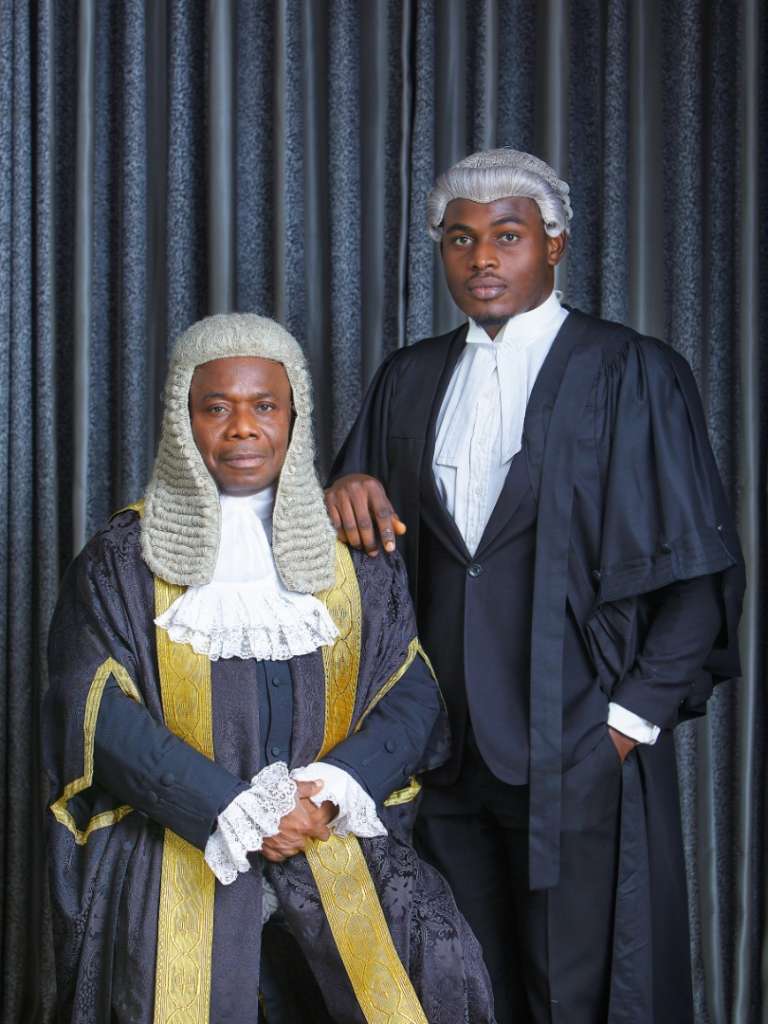
Then I have a nephew working with me. He was called in 2019.”
Advice to upcoming lawyers
“When you come into the legal profession, and I say it to junior lawyers in the law firm, those that come for internship, and Youth Corps members. Money is not everything in this profession. When you build your profession money will come. If you put money first you will run into trouble. I have a lot friends who from the beginning were driving SUVs; who were keener on chasing money at that time. Now they want to come back to the profession. I think we should be rooted in the profession first. I tell juniors that if you wake me from sleep and tell me to draft an agreement, I can do it by heart. This is due to constant practice.
“Another thing is tutelage. Some of our junior lawyers are in a hurry. I stayed in Cosmic Chambers for 12 years. Some of my colleagues were telling me to start my own practice. I just told them that at the right time I would. I just felt I needed the experience and I was grounded. I served my principal like no one could do and when it was time I left. That is why some people will start their office and they cannot draft simple pleadings. To me, the least period a junior should stay with a principal is 5 years. When I started my practice, my principal did not pay me salary. Whatever I generate at the end of the month I was paid. I remember I was once paid 500 naira. My foundation was favourable though tough. I remembered I would go to the secretary and ask her for 100 naira and that would be what would sustain me.
“On the other hand, some junior lawyers are not trustworthy. One for instance printed my office receipts and was using it to divert business from the office despite the fact that I don’t delay salary. I pay on the 28th of every month. He was collecting money from a client and issuing the receipts he printed. On top of that, he was not even doing the job but he was eventually exposed.
“I didn’t do that to my boss. My boss liked me so much that he didn’t want me to go. As the Abuja branch grew, most clients didn’t know him. But then I am a believer and don’t believe in cheating people. When I left, I wrote to the bank in which I was a signatory to and informed them I have resigned and ceased to be a signatory. I left without removing a dime or any file.
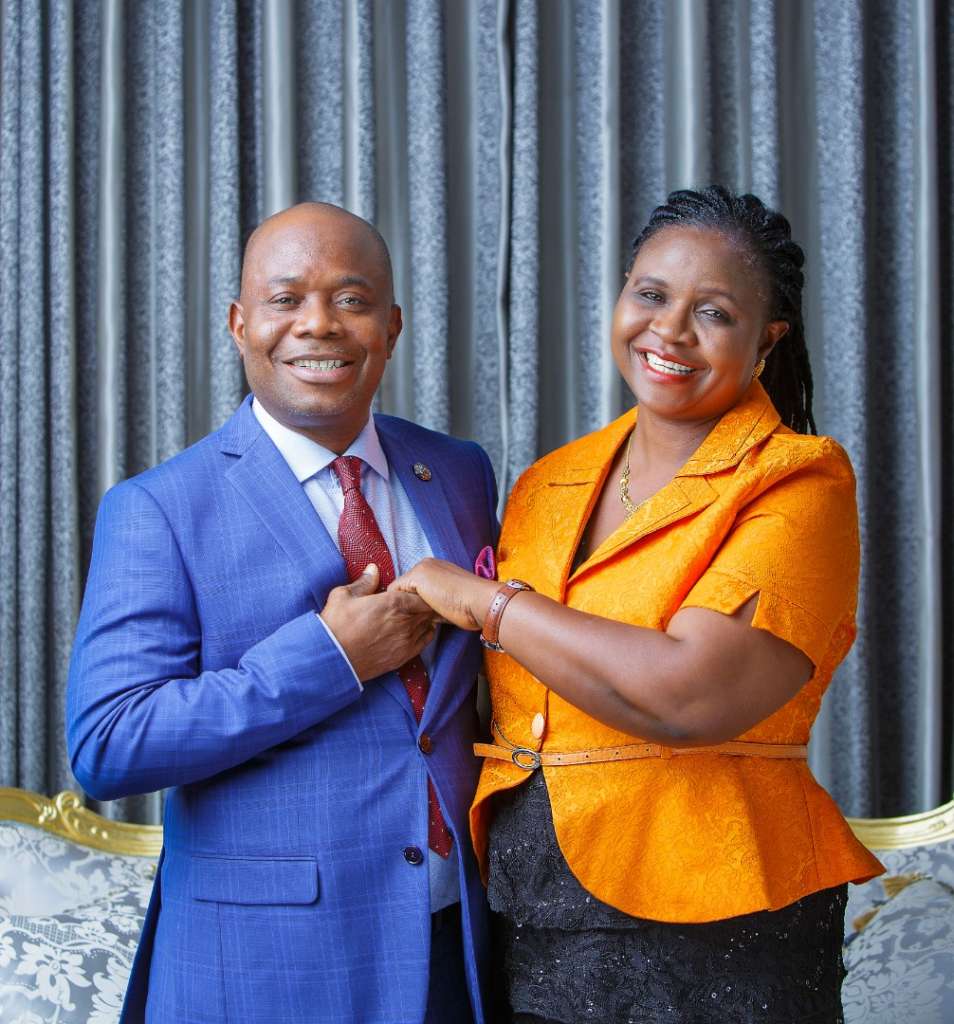
My wife would say don’t touch another person’s money.
“Meanwhile someone gave me a computer to start with. One day a man walked into the office and said someone referred him to me. He wanted me to do an agreement for him. He asked me the charges. I didn’t even know how to charge so I just told him anything and the man paid me N500, 000. I didn’t sleep that night.
“I tell my juniors if after 5 years you are not able to start your own office, then you are not serious. There is none that worked here I don’t communicate with anymore; even the one that printed my receipts.”

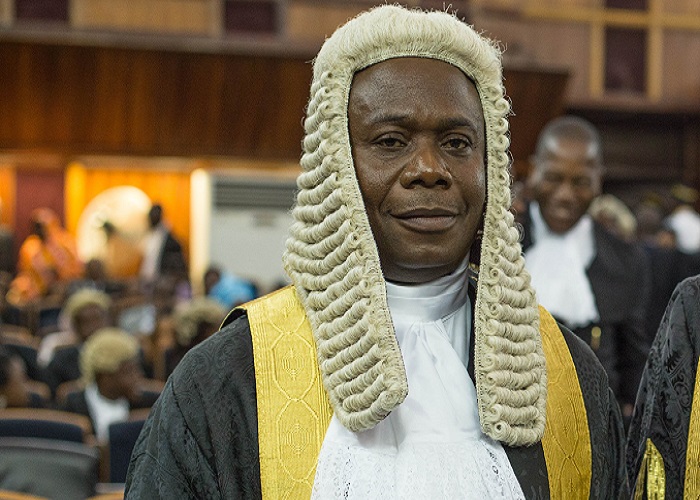




Inspiring, even for someone not in the legal profession. Cheers to more grace and strength sir 🥂
Keep on working, great job!
My web blog :: Lila